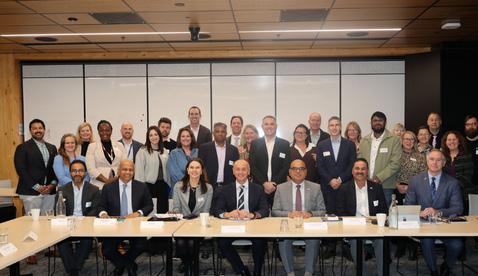
4 minute read
AIBC advances Australia–India trade relations through strategic engagements across sectors
Sydney, July 15
The Australia India Business Council (AIBC) National Board convened on June 28 to set priorities and discuss key developments across chapters. The meeting brought together national and state leadership to outline strategic directions, particularly focusing on member engagement, resource access, and the Council’s 40th anniversary preparations.
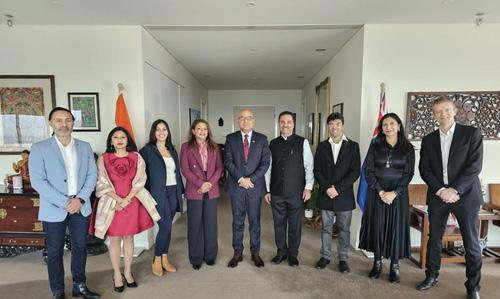
Several new industry chapter leads were appointed during the meeting. Sameer Arora will head Marketing, Sponsorships & Delegations; Saurabh Bansal will lead Cyber Security & Data Privacy; and Sandeep Khurana will oversee Fintech. Kiren Chitkara was appointed National Vice Chair while continuing as Company Secretary, tasked with coordinating industry chapters at the national level.
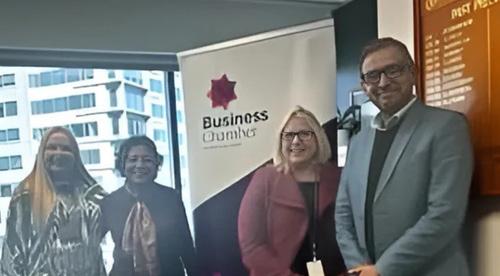
At the Annual General Meeting held in May, National Chair Deepak-Raj Gupta OAM presented a comprehensive report outlining AIBC’s leadership structure, milestones, and key achievements. Upcoming plans include the 40th anniversary celebrations and a strengthened focus on membership growth and outreach.
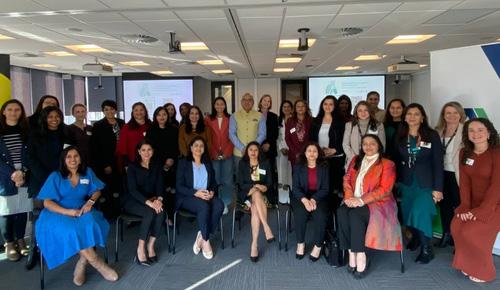
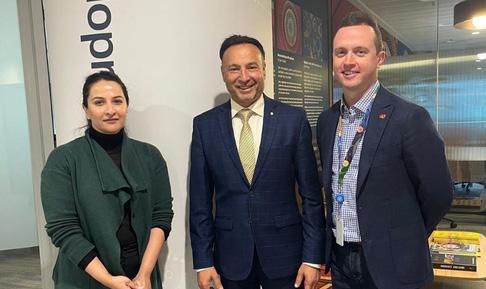
National Treasurer Tim Regan reported on the organisation’s financial position, confirming its sound footing for the upcoming year. The AGM also served as a platform to reaffirm AIBC’s commitment to advancing bilateral business ties.
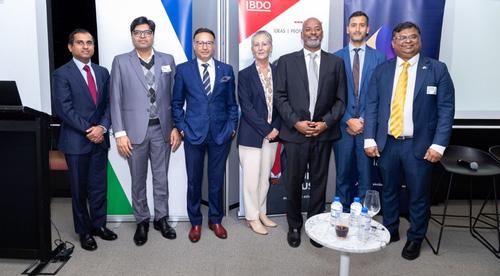
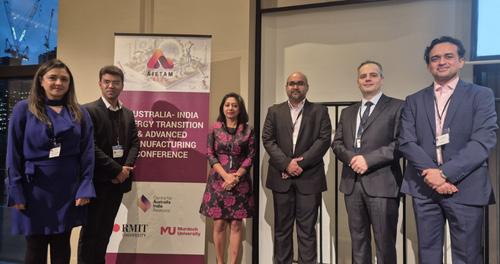
AIBC conducted a national survey to align its services and communication with member expectations. Findings indicated members value professional networking, business growth opportunities, and trade insights.
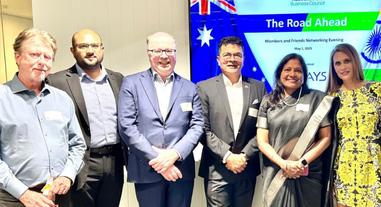
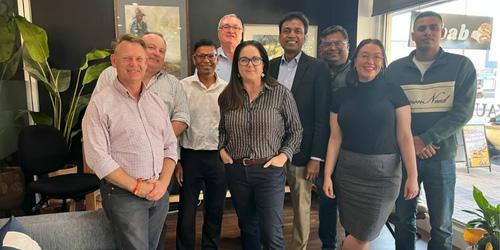
There is interest in industryspecific events, cross-sector collaboration, and practical trade information. Networking remains a key reason for joining the Council.
The inaugural Geelong India Business Roundtable, held in partnership with the City of Greater Geelong, focused on trade and investment collaboration.
With participation from Invest Victoria, Global Victoria, Deakin University, and local industry leaders, the roundtable discussed opportunities in clean energy, advanced manufacturing, defence, and tourism. The session reinforced AIBC’s commitment to cross-border engagement.
In Victoria, AIBC representatives met with the Consul General of India in Melbourne to explore bilateral cooperation in economic, cultural, and community sectors. Discussions centred on enhancing collaboration through multi-sector networks and future initiatives.
In Queensland, AIBC engaged with Business Chamber Queensland to promote trade and investment with India.
Discussions with Rachel Colaso and Diana Gueorguieva addressed fostering innovation and assisting Queensland businesses in accessing Indian markets, especially in view of the Brisbane 2032 Olympics.
AIBC partnered with Global Victoria Women to co-host a Women in Leadership roundtable. The event gathered participants from diverse sectors to discuss the role of women in Australia–India business relations, with a focus on preparation, cultural understanding, and mutual benefit.
In South Australia, National Chair Deepak-Raj Gupta engaged with state government officials and business leaders to explore collaboration in aviation and critical minerals. Visits included Adelaide’s flight training facilities and discussions with the University of South Australia.
AIBC’s Australia–India Bilateral Business Dialogue in Sydney examined strategic partnerships within critical minerals, smart energy, defence, and commercial sectors. The event highlighted the opportunities arising from the Australia–India Economic Cooperation and Trade Agreement and emphasised regional business access to Indian markets.
The Australia-India Energy Transition and Advanced Manufacturing (AIETAM) Conference in Melbourne featured AIBC Victoria’s participation. Supported by the Department of Foreign Affairs and Trade, the conference explored advanced manufacturing and energy transition collaborations, aligning with bilateral priorities.
In Western Australia, AIBC hosted a business networking event focusing on the Australia–India Economic Cooperation and Trade Agreement priorities for 2025–26. Presentations were delivered by management committee members and sponsors, with participation from local government and business representatives.
AIBC also led a business delegation to the regional cotton and textile hubs of Narrabri and Gunnedah in New South Wales. The delegation, which included industry leaders and government representatives, explored trade and investment opportunities in cotton and manufacturing sectors. The visit aimed at strengthening bilateral supply chains and supporting regional industry growth.
Across all engagements, AIBC continued its efforts to foster business connections, promote trade, and support the evolving Australia–India economic partnership.
Credit: AIBC Newsletter Second Quarter 2025










